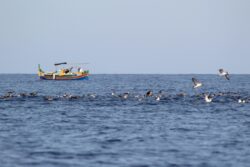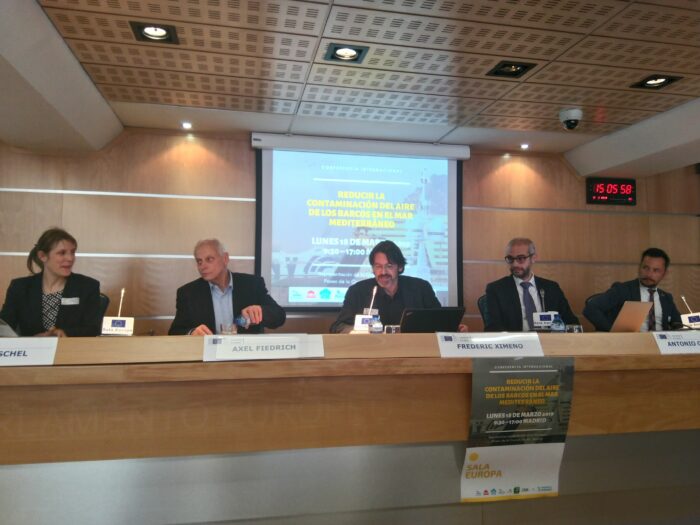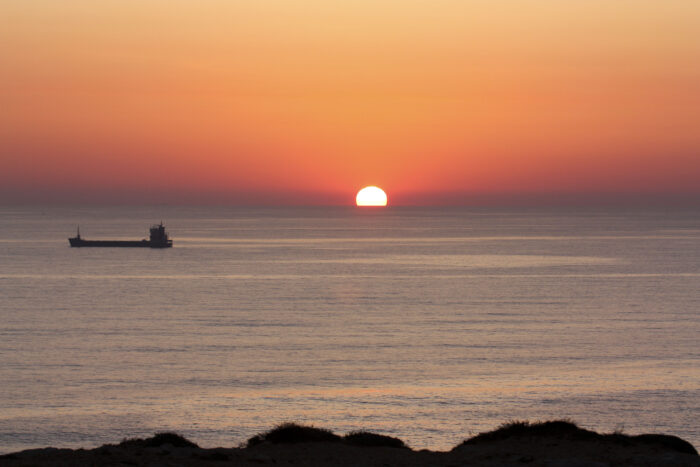It’s World Maritime Day! The theme this year is “Seafarers: at the core of shipping’s future”. The International Maritime Organisation (IMO) seeks to increase the visibility of seafarers by drawing attention to the invaluable role they play now and will continue to play in the future. So, here’s a round up of current maritime social issues followed by environmental issues and how they are currently being managed.
What is the problem?
Transportation of cargo represents a large maritime sector which has helped build economies through trade. Since Malta is a small island, heavily reliant on imports, there are issues involved which we should all be aware of. Since the COVID-19 pandemic, restrictions have meant that seafarers have suffered by being stranded for months on ships, unable to return to their families. More seafarers are unable to join ships and make a living so the restrictions have meant that people are stuck on both sides. This crew change problem has been declared a humanitarian emergency and is affecting not only people’s livelihoods but also safety and the supply chain. IMO is making the voices of seafarers heard and putting pressure on governments to ease this ongoing problem.
Further issues
Before the pandemic, the industry was already faced with a number of social challenges. Piracy is still a clear maritime issue in the modern day. Shipping costs are driven up by this threat as there is a need for added security, cost of thefts and delayed shipping time as well as criminal issues such as insurgents and piracy funding terrorist organisations. Hotspot areas appear to be Indonesia, Somalia and Malaysia, though it happens on a global scale. IMO has guidance and best management practices to avoid pirate attacks and logs all incidents and code of conducts to follow.
In addition to this, high risk of food poisoning and sanitary risks has been reported on board cruise ships. Labour conditions are very poor for crew with some working 80-hour weeks and being isolated from friends and family for months or years. The crew are generally from poor countries and are exploited and paid low wages. The lifestyle on board container vessels is similarly tough for crew and they spend very little time on land, as UNCTAD (2020) reports a fast turnaround time in port for these vessels which is necessary for efficiency and competitiveness but leaves no time for a break.
What is being done about it?
IMO is encouraging governments worldwide to change the status of seafarers to ‘key workers’ so that they can be prioritised for vaccines. People profiles and stories of hardship are being documented and shared and a number of events are being held globally to bring attention to the problem. Read more here.
What are the environmental impacts of the maritime industry?
The maritime industry poses threats to the environment in a number of ways which are being managed to varying degrees.
- Pollution
Maritime transport makes up 12% of global pollution. Tourism is the main contributor to environmental degradation with pollution from cruise ships waste disposal being discharged into the water as well as air pollution from emissions. Marine and coastal tourism is the fastest growing maritime economic activity.
The IMO expects CO2 emissions to double or triple by 2050, however, pressure will be put on shipping companies to increase the effort to reduce emissions. This can be achieved by enforcing ship operators to regularly upgrade and review energy efficiency of their vessel and reducing toxic substances in the fuel oil. It is expected there will be an increase in hydrogen content of fuel mixtures and less heavy fuel oil by 2030. There will also be a change in ship design, following the new environmental regulations with cleaner and more efficient ships utilising better hydrodynamics and the investment of low-carbon fuels.
In 2016 BirdLife Malta launched the Together against Air Pollution from Ships project which focuses on bringing awareness to the problem and working with our partner organisations to develop an Emission Control Area (ECA) in the Mediterranean. The establishment is expected to contribute to the reduction of harmful air pollutants which now are emitted in high volumes from the vessels operating in the Mediterranean.
Spread of invasive species through ballast water has been a further environmental issue. The Ballast Water Management Convention (IMO, 2020) was passed in the early 2000s to tackle this problem. The problems associated with the spread of invasive species through ballast water have been addressed by the use of active substances and disinfection products.
- Shipbreaking
When a ship is no longer financially viable to run due to maintenance costs, it gets scrapped. Bangladesh is the main demolition country and the average lifespan of a modern-day ship is 21 years. Shipbreaking, although economically important, is also damaging to the environment and human health with pollution of heavy metals found in the soil and food crops in Bangladesh. With the introduction of policies and international regulations such as the MARPOL Convention (1972) and the Hong Kong Convention (2009), the shipbreaking process can be made safe and sustainable.
- Fishing and bycatch

Fishing is the oldest maritime industry. The trawler is the most common fishing vessel and it targets demersal fish such as hake, halibut, cod and haddock. Pelagic species including herring and mackerel are also targeted by trawlers. Modern day fishing vessels are extremely efficient. Technology allows the ability to locate large shawls of fish and they can stay out at sea for long periods of time. The trawl net hauls up the catch and the fish are then processed before being frozen in a large refrigerator.
Up to 6,000 tonnes of fish can be stored on these vessels. Since the method is so efficient it has led to shortages in fish populations and threatened species. In addition to overfishing, bycatch is a further issue as a lot of non-target species are caught and killed as a result. This applies not just to fish but other animals, including seabirds which are attracted to the bait and dive down to eat it, getting hooked themselves.
In the EU, longlines and gillnets kill over 200,000 birds each year. Various mitigation methods are being developed and put into practice and projects such as LIFE PanPuffinus! are further seeking to understand this issue and how best to overcome it. In addition, discarded fishing gear can be lethal.
- Vessel strikes
Vessel strikes happen mainly to cetaceans and are a result of marine animals sharing the same pathways as shipping routes or their need to come to the surface to breathe. It can happen from all different types of vessels (including whale watching ones) and operators may not even be aware that they have struck an animal. This is because they can be very difficult to spot and even if they do see them there may not be enough time to divert the vessel. In August, LovinMalta reported the death of a Loggerhead Turtle as a result of a boat or jetski strike, a sad reminder of the problems with animals and humans sharing marine space. Things are being done to combat this issue though, including reduced speed restrictions, establishing temporary precaution zones when cetaceans have been spotted and educating/alerting mariners to safe practices around marine animals. Read further here.
- Shipwrecks
There are 18 main shipwreck sites in Malta. They can release harmful toxins into the environment which are measured in fish and sediment. Significant differences in pollutant levels are found between different wrecks depending on their cargo. However, in spite of these impacts, wrecks can serve important ecological functions, acting as artificial reefs. A study on the colonisation of a wreck in East Australia found that local diversity and biomass was enhanced by the wreck with a wide variety of epibenthic species inhabiting it within one year. Some shipwrecks are also prime diving locations, allowing people to get up close whilst following the “Respect our Wrecks” Policy (BSAC, 2020).
You can support our work and keep up to date with our seabird project by becoming a member here.
By Belinda Hodder, BirdLife Malta Communications Assistant
Belinda Hodder is an Erasmus+ volunteer following a European Solidarity Corps programme


